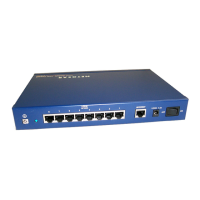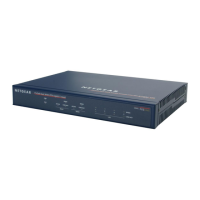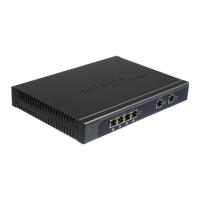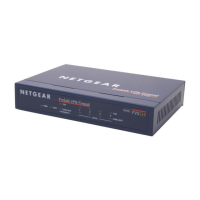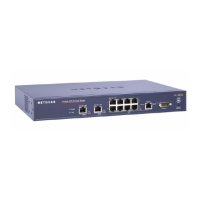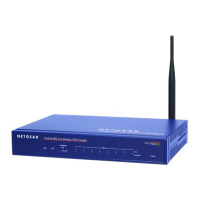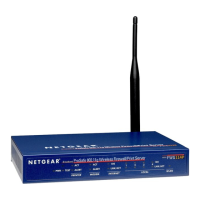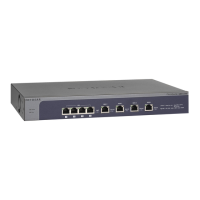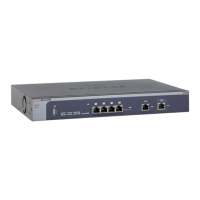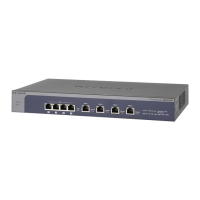221
7
7. Virtual Private Networking
Using IPv4 SSL Connections
The wireless VPN firewall provides a hardware-based SSL VPN solution designed specifically to
provide remote access for mobile users to their corporate resources, bypassing the need for a
preinstalled VPN client on their computers. Using the familiar Secure Sockets Layer (SSL)
protocol, commonly used for e-commerce transactions, the wireless VPN firewall can
authenticate itself to an SSL-enabled client, such as a standard web browser. Once the
authentication and negotiation of encryption information are completed, the server and client can
establish an encrypted connection. With support for up to 5 dedicated SSL VPN tunnels, the
wireless VPN firewall allows users to easily access the remote network for a customizable,
secure, user portal experience from virtually any available platform.
This chapter contains the following sections:
• SSL VPN Portal Options
• Overview of the SSL Configuration Process
• Configure Domains, Groups, and Users
• Configure Applications for Port Forwarding
• Configure the SSL VPN Client
• Use Network Resource Objects to Simplify Policies
• Configure User, Group, and Global Policies
• Access the New SSL Portal Login Screen
Note: In this release, the wireless VPN firewall supports SSL VPN
connections for IPv4 traffic only. By themselves IPv6 addresses
provide a much higher level of security than IPv4 addresses, and
future releases will support SSL VPN connections for IPv6 traffic.
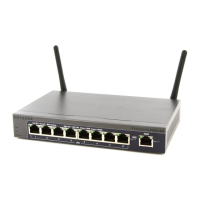
